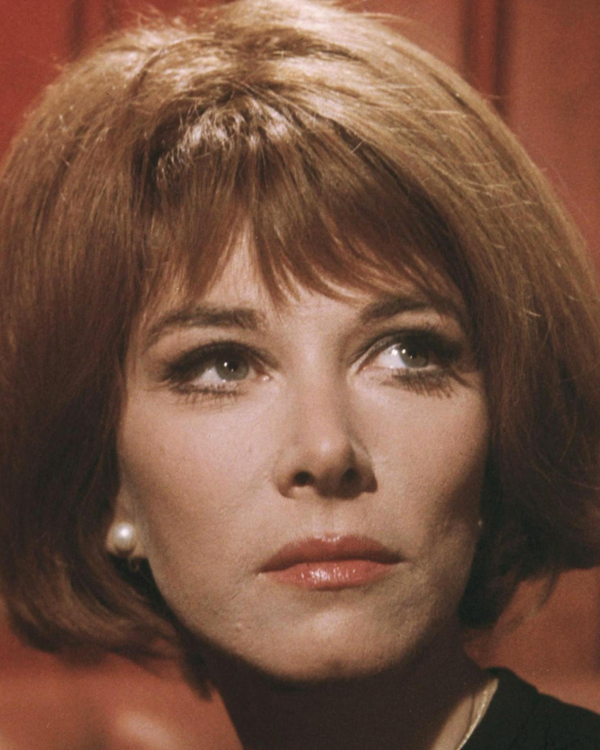Lee Grant – Full Biography
Full Name: Lyova Haskell Rosenthal
Stage Name: Lee Grant
Date of Birth: October 31, 1925
Place of Birth: Manhattan, New York City, U.S.
Nationality: American
Occupations: Actress, Director, Documentarian, Author, Activist

Early Life and Education
Lee Grant was born in Manhattan to Jewish immigrant parents. A child prodigy in the performing arts, she made her stage debut at age 4 at the Metropolitan Opera in L’Oracolo (1931). She studied ballet under George Balanchine and later pursued acting at the Neighborhood Playhouse School of the Theatre under the legendary Sanford Meisner. She was also a member of the Actors Studio, where she further honed her dramatic skills.
Career Beginnings and Breakthrough
Lee Grant’s Broadway debut came in Detective Story (1949), a role she later reprised in the 1951 film adaptation directed by William Wyler. Her performance as a shoplifter earned her:
- An Academy Award nomination for Best Supporting Actress
- The Best Actress Award at the Cannes Film Festival
This early acclaim launched her as a rising star in Hollywood.
Blacklisting and Career Interruption
Despite her early success, in 1951, Lee Grant delivered a eulogy for actor J. Edward Bromberg, which included criticism of the House Un-American Activities Committee (HUAC). As a result, she was blacklisted for 12 years during the McCarthy era for her alleged leftist affiliations.
During this time, she:
- Taught acting
- Performed under pseudonyms
- Was barred from working under her real name in mainstream television and film

Return to Acting and Success in the 1960s–70s
Once cleared from the blacklist, she made a strong return to acting in the 1960s, including a role in the TV series Peyton Place, for which she won a Primetime Emmy Award. Over the next decade, she gained further acclaim with major film roles:
- In the Heat of the Night (1967) – Oscar-nominated
- The Landlord (1970) – Oscar-nominated
- Shampoo (1975) – Won the Academy Award for Best Supporting Actress
- Voyage of the Damned (1976) – Oscar-nominated
Her talent earned her not only awards but also a reputation as one of the finest actresses of her generation.

Transition to Directing and Documentary Work
In the 1980s, Grant shifted focus from acting to directing. She used her platform to tell socially impactful stories through documentaries and TV films. Notable works include:
- Tell Me a Riddle (1980) – Feature film directorial debut
- Nobody’s Child (1986) – Won Directors Guild of America Award
- Down and Out in America (1986) – Won the Academy Award for Best Documentary Feature
Her documentary work often spotlighted social inequality, homelessness, mental illness, and the lives of women.
Awards and Honors
- Academy Awards: 4 nominations, 2 wins (1 for acting, 1 for directing)
- Emmy Awards: 1 win (Peyton Place), multiple nominations
- Golden Globe Nominations: 5
- Cannes Film Festival: Best Actress (Detective Story)
- Directors Guild Award: For Nobody’s Child
Personal Life
Lee Grant was married to screenwriter Arnold Manoff, who was also blacklisted. Together they had a daughter, Dinah Manoff, who later became an actress. After Manoff’s death, Lee married producer and artist Joseph Feury, who collaborated with her on many documentaries.
Memoir
In 2015, Grant published her memoir titled “I Said Yes to Everything”, a deeply candid look at:
- Her early stardom
- The trauma of the blacklist era
- Her struggle to return
- Personal triumphs and battles with sexism in Hollywood
Legacy and Later Years
Even into her 90s, Lee Grant remains active and celebrated. Her films have been restored and re-screened at festivals. She is widely respected as:
- A trailblazer for women in film
- A survivor of political repression
- An outspoken voice for justice
Her work—both in front of and behind the camera—has left an indelible mark on American cinema.